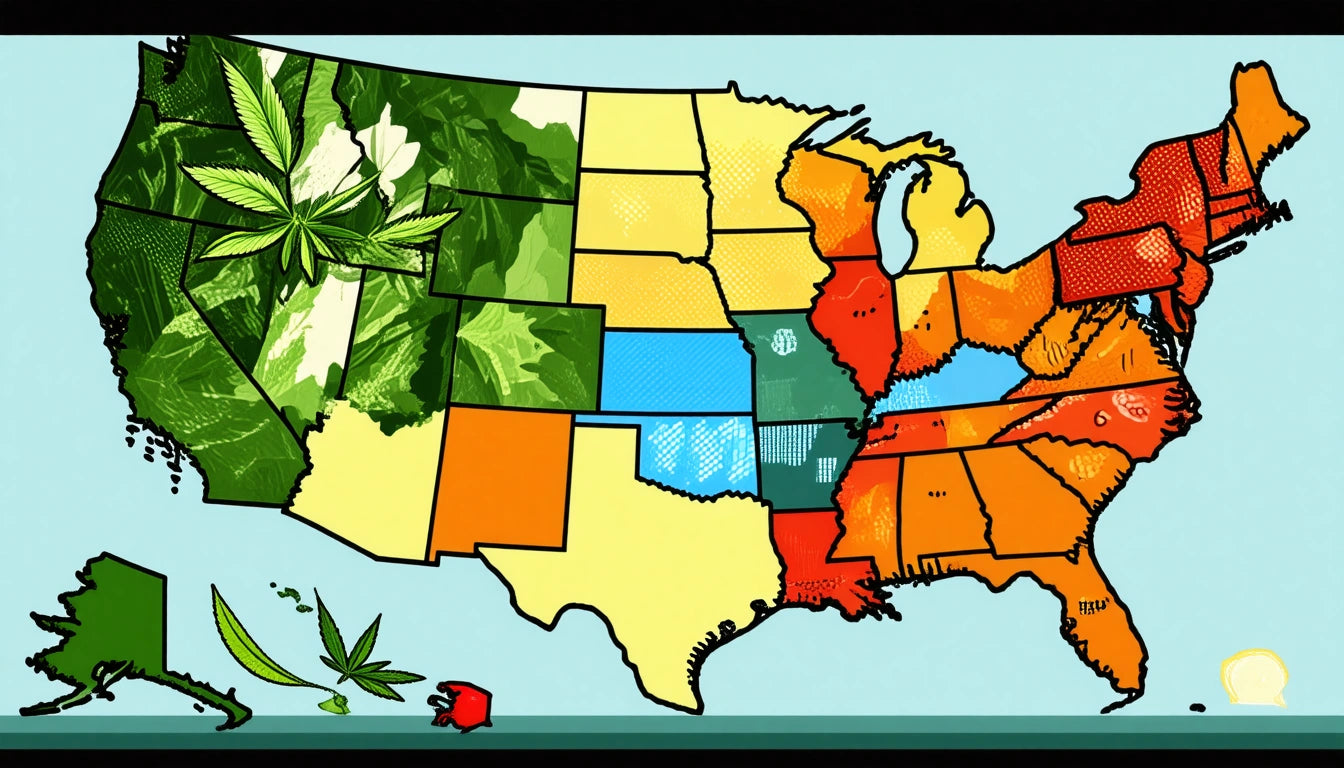Table of Contents
- Current Status of Marijuana Laws in Tennessee and Kentucky
- Recent Legislative Efforts and Public Support
- Medical Marijuana Programs: Progress and Roadblocks
- Potential Economic Impact of Legalization
- Influence of Neighboring States on Legalization Timeline
- Realistic Prediction Timeline for Full Legalization
The Future of Marijuana Legalization in Tennessee and Kentucky: What to Expect
As cannabis reform sweeps across the United States, many residents in southern states are asking when will weed be legal in Tennessee and Kentucky. Both states maintain relatively strict cannabis laws compared to the growing number of states embracing legalization. This article examines current legislation, public opinion, and projected timelines for potential marijuana legalization in these neighboring southern states.
Current Status of Marijuana Laws in Tennessee and Kentucky
Tennessee and Kentucky currently maintain some of the strictest cannabis laws in the country. In Tennessee, possession of even small amounts remains a misdemeanor offense, while Kentucky similarly criminalizes possession. Neither state has a comprehensive medical marijuana program, though limited exceptions exist.
In Tennessee, only CBD oil with less than 0.9% THC is permitted for specific medical conditions. Kentucky allows CBD products with less than 0.3% THC under federal hemp regulations. These restrictive approaches put both states at odds with the national trend toward more progressive cannabis policies.
Recent Legislative Efforts and Public Support
Despite conservative leadership, both states have seen increasing legislative activity around cannabis reform. In Tennessee, several bills have been introduced in recent sessions, including:
- Medical cannabis legislation that passed Senate committees but stalled in full chamber votes
- Decriminalization proposals for small amounts in major metropolitan areas
- Hemp industry expansion initiatives that could pave the way for broader reform
Kentucky has shown similar momentum, with the Kentucky House passing a medical marijuana bill in 2020, though it failed to advance in the Senate. More recent efforts have gained additional support, suggesting the question of when will pot be legal in Kentucky may have a more optimistic answer than in previous years.
Public polling consistently shows majority support for medical marijuana in both states, with growing acceptance of medical programs even among conservative voters. Full recreational legalization faces stronger opposition but is gaining support, particularly among younger demographics.
Medical Marijuana Programs: Progress and Roadblocks
Medical marijuana typically precedes full legalization in most states. For Tennessee and Kentucky, this pathway faces significant challenges but shows promising developments.
In Tennessee, limited medical cannabis legislation has repeatedly been introduced but faces opposition from key legislative leaders and law enforcement groups. The state's medical cannabis commission continues to study implementation models from other states, suggesting preparations for eventual policy change.
Kentucky appears closer to implementing a medical program, with Governor Andy Beshear expressing support and taking executive action to explore medical cannabis options. His administration has established an advisory committee and issued limited medical cannabis executive orders, though comprehensive legislation remains stalled.
For businesses anticipating eventual legalization, preparation remains important. Many companies are already securing compliant packaging solutions for cannabis products that would meet future regulatory requirements in these states.
Potential Economic Impact of Legalization
Economic considerations may ultimately accelerate the timeline for when marijuana will be legal in Tennessee and Kentucky. Both states could benefit significantly from regulated cannabis markets:
- Tax revenue generation from sales and licensing fees
- Job creation across cultivation, processing, and retail sectors
- Agricultural opportunities for farmers, particularly in tobacco-growing regions
- Tourism potential, especially in areas already drawing visitors
Studies from states with established markets demonstrate substantial economic benefits. For Tennessee and Kentucky, with their strong agricultural backgrounds and tourism industries, cannabis could represent a significant economic opportunity that may eventually outweigh political resistance.
Influence of Neighboring States on Legalization Timeline
Regional pressure is mounting as neighboring states adopt more progressive cannabis policies. This pattern has accelerated legalization timelines in other regions, as states seek to prevent revenue loss to nearby legal markets.
For Tennessee, bordering states like Virginia and Illinois have already legalized adult-use cannabis, while Missouri and Arkansas have established medical programs. This creates economic and policy pressure that may influence when weed will be legal in TN.
Kentucky faces similar regional influences, with Illinois, Ohio, and West Virginia implementing various forms of legalization or medical programs. As nationwide legalization efforts continue to advance, both states may find themselves economically disadvantaged by maintaining prohibition.
Realistic Prediction Timeline for Full Legalization
Based on current trends, legislative momentum, and regional influences, we can make some educated predictions about when pot will be legal in Tennessee and Kentucky:
For Tennessee, medical marijuana legislation appears likely within the next 2-3 legislative sessions, potentially by 2025-2026. Full recreational legalization would likely follow several years later, possibly by 2028-2030, depending on how neighboring states' markets develop and whether federal policy changes occur.
Kentucky may move slightly faster on medical cannabis, with a program potentially implemented by 2024-2025 if current momentum continues. Recreational legalization would still face significant hurdles but could be possible by 2027-2029.
These timelines could accelerate dramatically if federal legalization or rescheduling occurs, removing many of the interstate commerce barriers currently complicating state-level reforms.
For residents wondering when will weed be legal in Tennessee or Kentucky, patience remains necessary. However, the clear national trend toward legalization suggests these states will eventually join the growing number of markets embracing cannabis reform, even if they aren't leading the charge.











Leave a comment
All comments are moderated before being published.
This site is protected by hCaptcha and the hCaptcha Privacy Policy and Terms of Service apply.